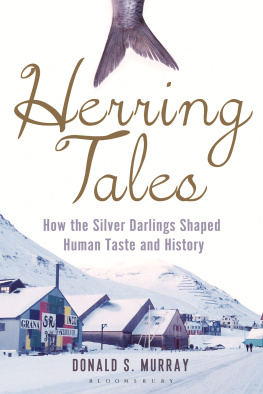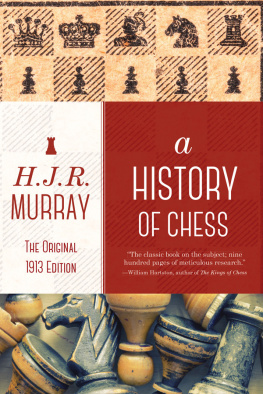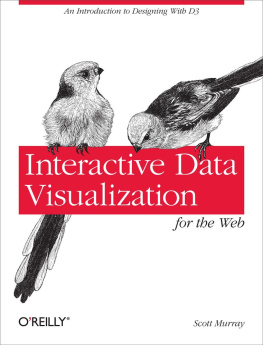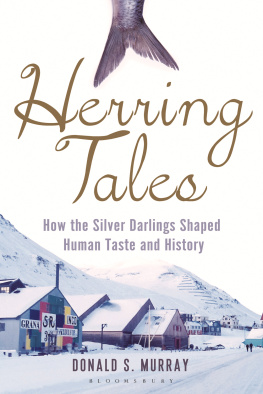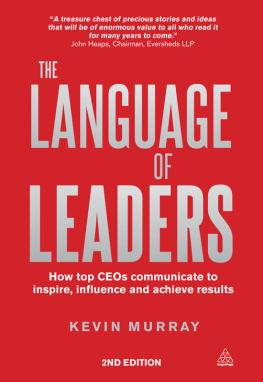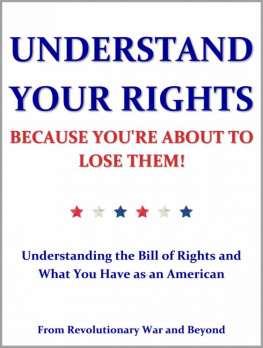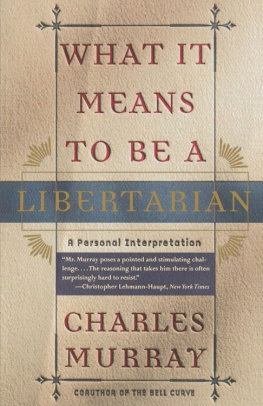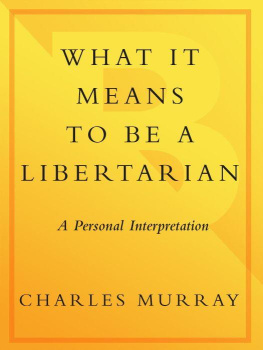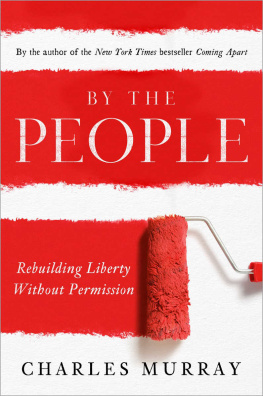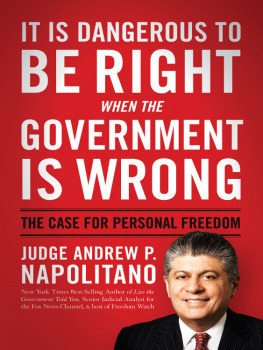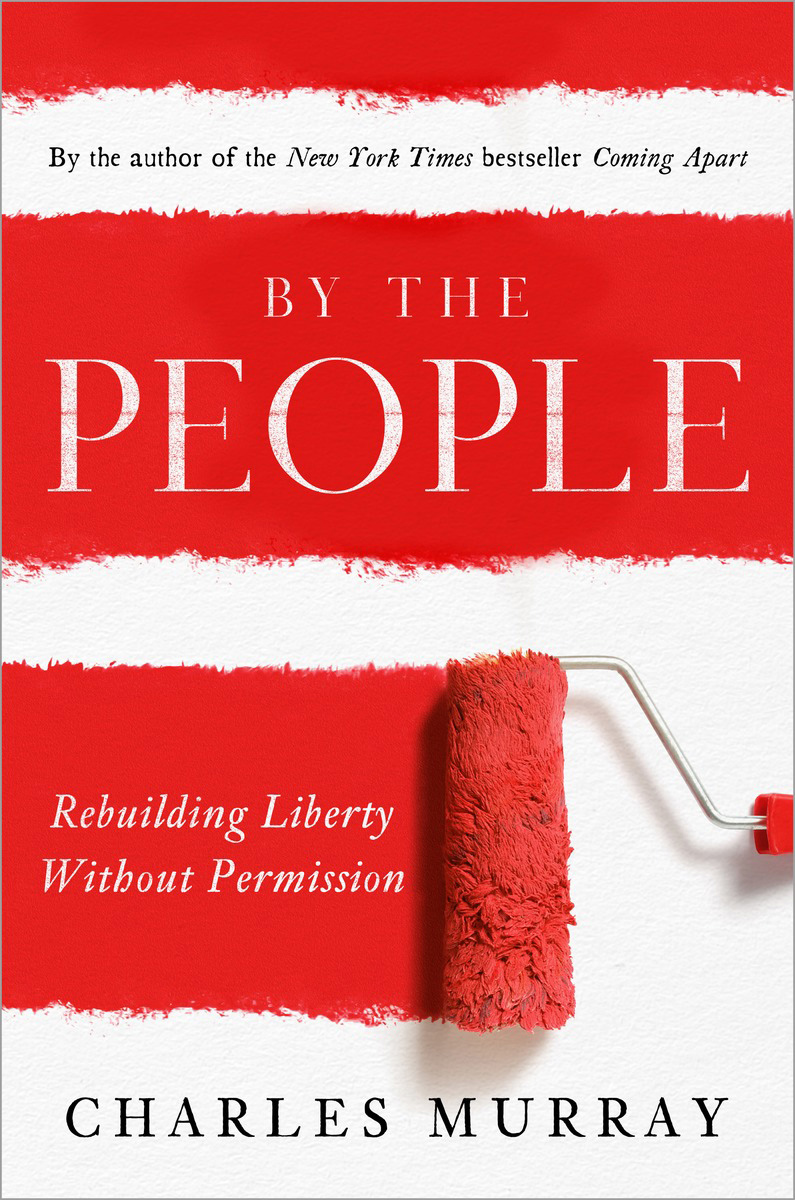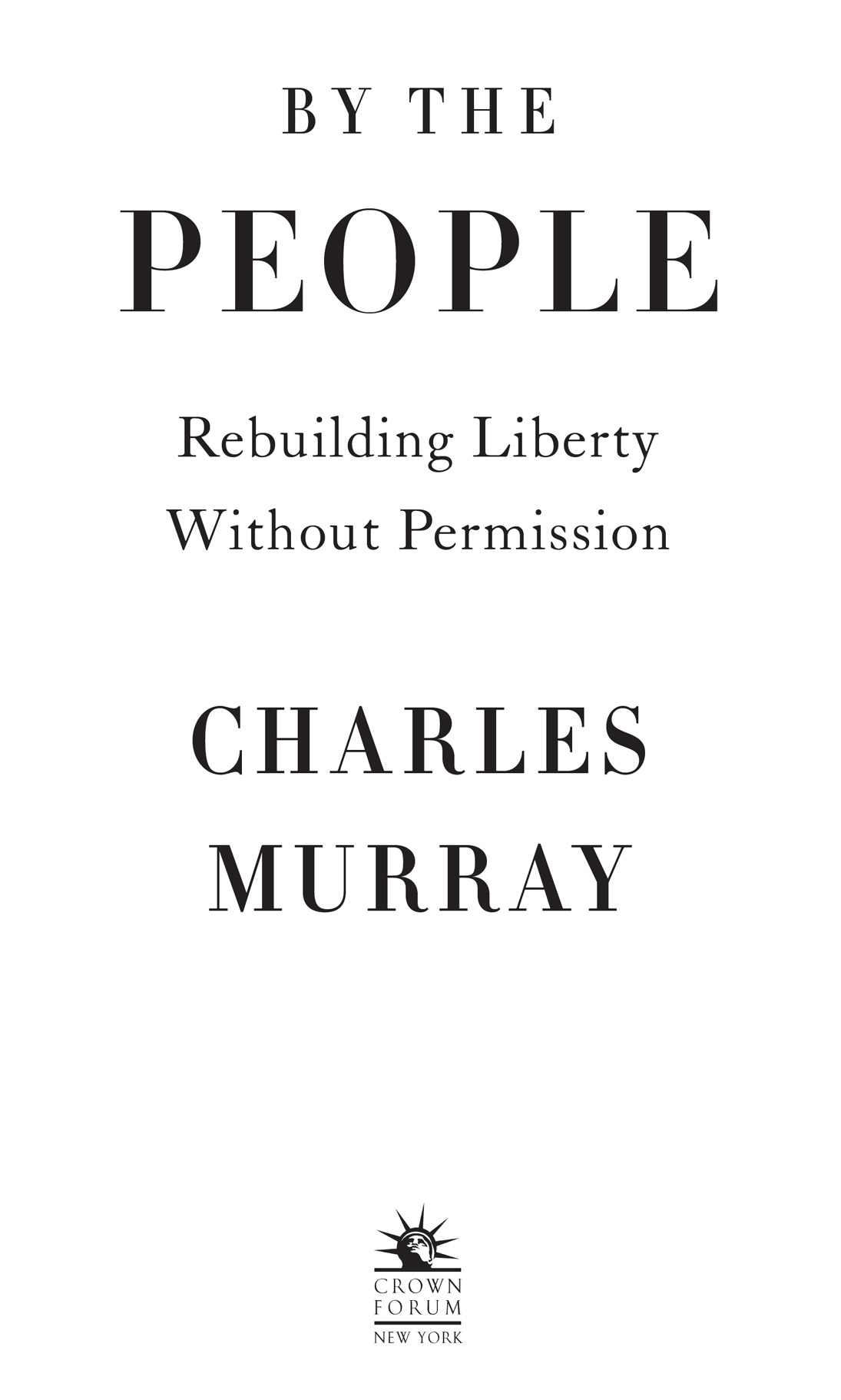A LSO BY C HARLES M URRAY
Coming Apart
Human Accomplishment
What It Means to Be a Libertarian
The Bell Curve
Losing Ground
Real Education
Copyright 2015 by Cox and Murray, Inc.
All rights reserved.
Published in the United States by Crown Forum, an imprint of the Crown Publishing Group, a division of Penguin Random House LLC, New York.
www.crownpublishing.com
CROWN FORUM with colophon is a registered trademark of Penguin Random House LLC.
Library of Congress Cataloging-in-Publication data is available upon request.
ISBN 9780385346511
eBook ISBN 9780385346528
Illustrations by Joe LeMonnier
Jacket design by M80
v3.1_r1
To Amanda Urban,
the good shepherd
C ONTENTS
PART I
C OMING TO T ERMS WITH W HERE W E S TAND
PART II
O PENING A N EW F RONT
PART III
A P ROPITIOUS M OMENT
I think that the species of oppression by which democratic nations are menaced is unlike anything that ever before existed in the world.
The supreme power then extends its arm over the whole community. It covers the surface of society with a network of small, complicated rules, minute and uniform, through which the most original minds and the most energetic characters cannot penetrate to rise above the crowd. The will of man is not shattered, but softened, bent, and guided; men are seldom forced by it to act, but they are constantly restrained from acting. Such a power does not destroy, but it prevents existence; it does not tyrannize, but it compresses, enervates, extinguishes, and stupefies a people, till each nation is reduced to be nothing better than a flock of timid and industrious animals, of which the government is the shepherd.
A LEXIS DE T OCQUEVILLE , Democracy in America
The power which a multiple millionaire, who may be my neighbour and perhaps my employer, has over me is very much less than that which the smallest functionaire possesses who wields the coercive power of the state, and on whose discretion it depends whether and how I am to be allowed to live or to work.
F RIEDRICH VON H AYEK , The Road to Serfdom
A Note on Presentation
By the People takes on topics that are esoteric in some cases and in all cases have been the subject of extensive and contentious scholarship. How does one deal with the complexities and still present the material in a way that an intelligent but not obsessive reader can be asked to follow? I use my three favorite measures: For those who want to dig deeper, I give short reading lists of the books I have found most useful. Boxed text introduces related issues that are of interest but not essential. Endnotes expand upon points that are stated briefly in the main text. You can identify which endnotes contain additional material by the brackets flanking their superscripted call-out numbers.
Regarding singular third-person pronouns, I continue to think that his or her and he or she are stylistically barbaric, and that for male authors to default to her and she is too precious by half. So I continue to promote a solution I have advocated for many years: Unless there is an obvious reason not to, use the gender of the author or, in a co-written text, the gender of the principal author. I use the masculine third-person singular throughout.
Introduction
T he twin propositions of this book are that we are at the end of the American project as the founders intended it, but that opportunities are opening for preserving the best qualities of the American project in a new incarnation.
By the American project I mean the continuing effort, begun with the founding, to demonstrate that human beings can be left free as individuals, families, and communities to live their lives as they see fit as long as they accord the same freedom to everyone else, with government safeguarding a peaceful setting for those endeavors but otherwise standing aside.
When I say that we are at the end of the American project as the founders intended it, I mean that only remnants remain, and they are reserved for a lucky few. The largest remnant is that able, industrious people can still get ahead in todays America regardless of their origins. Thats good, but the people who become successful as measured by the metrics of money, power, and celebrity make up a small minority of the whole: an elite.
Thats exactly what the American project was not supposed to be. America at its founding broke with history. Liberty and the pursuit of happiness were no longer to be privileges for a few but the unalienable rights of all. All Americans, high and low, were to be left free to live their lives as they saw fit.
That was the essence of the American promise. For the first century and a half, the nation kept that promise for white Americans. For the last seventy-five of those years, the nation began to make good on it for black Americans. Then the promise was intermingled with other priorities and other agendas. What made America unique first blurred, then faded, and is now almost gone. describes how it happened and my reasons for concluding that the normal political process will not rescue us.
The second proposition of By the People is that opportunities are opening for preserving the best qualities of the American project in a new incarnation. This hopeful proposition takes two forms. The center of my attention in describes practical strategies for taking advantage of this weakness, using the resources of the private sector to nullify rules that arbitrarily and capriciously interfere with ordinary people trying to live their lives as they see fit.
takes up a more indefinite but potentially transforming set of possibilities. We are at a peculiarly propitious moment for reshaping the polity. The reasons range from cultural to demographic to fiscal. I believe the openings created by these conditions have the potential to break todays political logjam, opening the way for reforms that are impossible now.
By the People is written for people who are devoted to limited government. In todays terminology, that includes classical liberals, libertarians, and many conservatives.
As I got into the book, I discovered that I had to find a label less cumbersome than people who are devoted to limited government yet one that almost all of us can live with. My first impulse was to call us Jeffersonians , but Jefferson was well to the libertarian side of the spectrum, and I wanted to include advocates of limited government who think of themselves as conservatives. I settled on Madisonians instead. It was Madison who, more than any other individual, midwifed the Constitution and the Bill of Rights. It was his Constitution that preserved limited government for the first century and a half of Americas existence. Classical liberals, libertarians, and conservatives who love limited government disagree on many things, but not, I think, on this: If we could restore limited government as Madison understood it, all of our agendas would be largely fulfilled.
Because Madisonians are my primary audience, I assume that my readers do not need to be persuaded of the rightness of our cause. Shelves of books have made the theoretical and empirical cases for liberty. By the People focuses on how to rebuild liberty, not on why.


